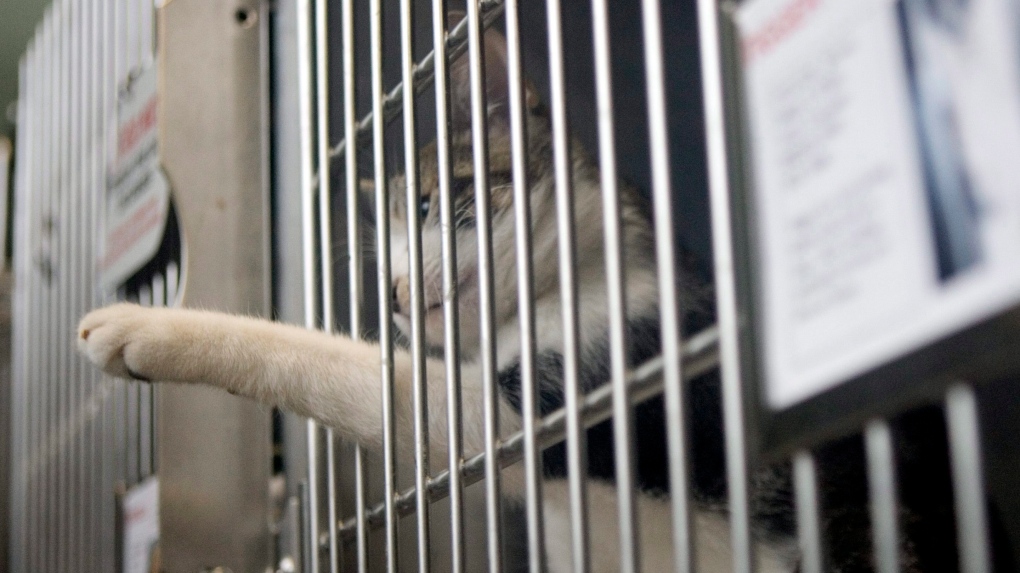Animal shelters throughout Canada are struggling to make room for surrendered pets as resources are stretched to a breaking point, according to the federation of humane societies and SPCAs.
Barbara Cartwright, CEO of Humane Canada, says overwhelming waitlists at shelters across the country, and a lack of resources such as medical support, food and foster care are creating “the perfect storm.”
“We’re seeing that the number of calls and emails and messages coming into shelters for help are going up significantly,” she told CTVNews.ca. “Shelters are close or at capacity.”
Cartwright said this pattern of owners no longer being able to care for their animals extends to cities all over the country, and complications are rising as staffing shortages make caring for animals all the more difficult.
There are numerous factors at play that could be the cause of increasing numbers of surrendered animals, Cartwright explained, pointing to return-to-office trends and animal behavioural problems that are difficult for families to cope with.
“What we’re seeing is a shift in the types of animals coming into shelters,” Cartwright said. “And we’re seeing an increase in behavioural issues and medical issues, and that requires more resources from the shelter in order to prepare the animal for adoption. That means the animal stays in shelter longer before they could be put up for adoption.”
Aside from medical and behavioural issues causing more dogs to be brought to the pound, and causing them to stay longer, Cartwright also recognizes a major force responsible for pushing shelters to capacity: inflation.
“There is the fact that families cannot afford to feed their animals, anymore. They can’t afford to feed themselves anymore. So that cost of inflation is stretching the family budget. That’s where we see an irregularly increasing demand for pet food banks.”
Cartwright says that another major obstacle is that accessible vet care is getting increasingly difficult to find.
“In the past we might have only seen that as a financial issue, but now we are seeing a vet shortage happening across the country. Since it’s very hard to find a vet, you can end up at the emergency vet, which costs even more money.”
Lenore Hume, with the Winnipeg Humane Society, told CTVNews.ca that her shelter is overwhelmed with animals in ways her and fellow staff have not seen before.
“Right now we have over 120 cats and 60 dogs on the waitlist to be surrendered,” she said. “We simply do not have the space to take them in.”
At any given point, Winnipeg Humane Society is managing 400 plus animals, she explained.
“Right now we’re taking in six injured strays, and we simply don’t have the space to take all the surrendered animals. We think it’s only going to get worse.”






































